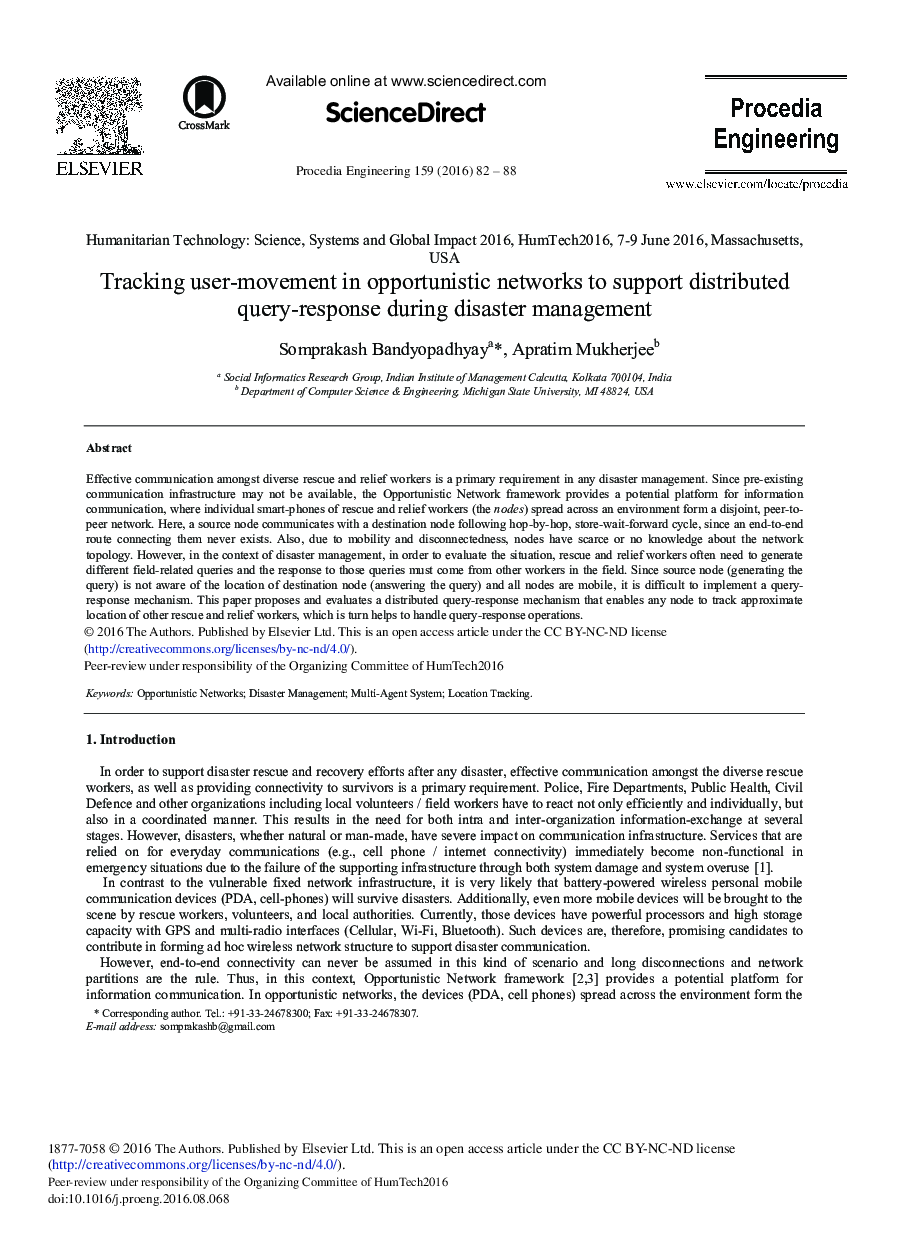| Article ID | Journal | Published Year | Pages | File Type |
|---|---|---|---|---|
| 5030080 | Procedia Engineering | 2016 | 7 Pages |
Effective communication amongst diverse rescue and relief workers is a primary requirement in any disaster management. Since pre-existing communication infrastructure may not be available, the Opportunistic Network framework provides a potential platform for information communication, where individual smart-phones of rescue and relief workers (the nodes) spread across an environment form a disjoint, peer-to-peer network. Here, a source node communicates with a destination node following hop-by-hop, store-wait-forward cycle, since an end-to-end route connecting them never exists. Also, due to mobility and disconnectedness, nodes have scarce or no knowledge about the network topology. However, in the context of disaster management, in order to evaluate the situation, rescue and relief workers often need to generate different field-related queries and the response to those queries must come from other workers in the field. Since source node (generating the query) is not aware of the location of destination node (answering the query) and all nodes are mobile, it is difficult to implement a query-response mechanism. This paper proposes and evaluates a distributed query-response mechanism that enables any node to track approximate location of other rescue and relief workers, which is turn helps to handle query-response operations.
